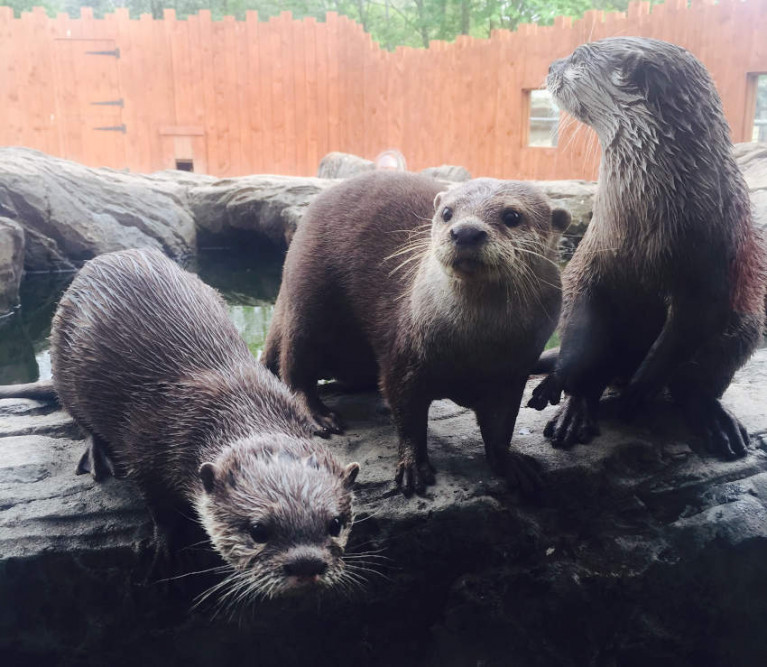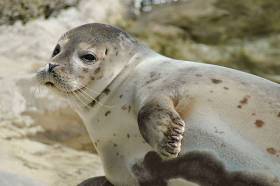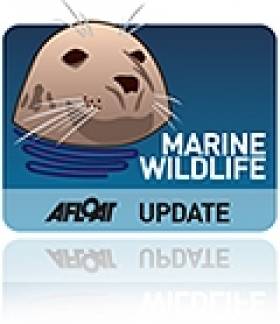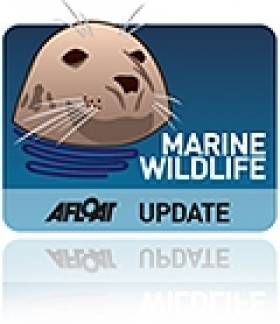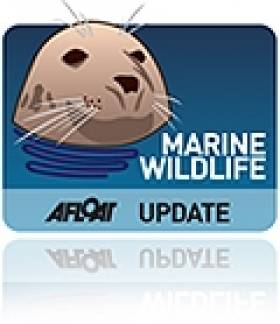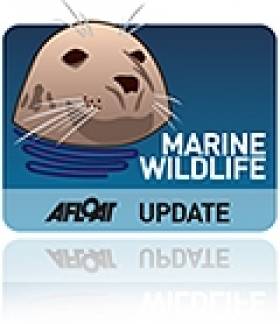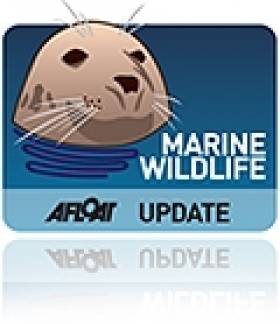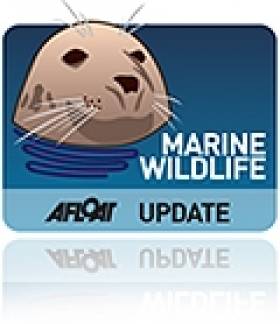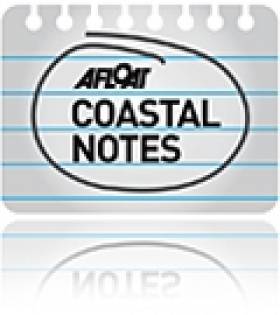Displaying items by tag: Exploris
Portaferry’s Exploris Aquarium Faces Uncertain Future As Belfast Competitor Gets Go-Ahead
Portaferry’s Exploris aquarium may soon face competition from a £12 million competitor in Belfast’s Titanic Quarter — and a battle for its own future, as the News Letter reports.
Belfast City councillors on the planning committee gave their approval for the ‘reefLife’ project on Wednesday — despite Ards and North Down Council raising their objections with Stormont’s Infrastructure Minister.
Exploris has faced financial challenges for years, and received an emergency lifeline from the Executive after it was earmarked for closure in 2013.
Now it’s feared the new Belfast aquarium plans would have “wider ramifications” for the Co Down seaside town, and have a “a devastating impact” on Exploris and its marine wildlife sanctuary on the Ards Peninsula.
The News Letter has more on the story HERE.
Seals Released Off North Coast After Extended Exploris Stay
#MarineWildlife - Two common seals were released off the North Coast last week after being nursed back to health at the Exploris aquarium in Portaferry.
According to The Irish News, the seals named Hans and Albert had been with the sanctuary since the summer, when they arrived with various injuries.
However, by September both had put on weight and were eating by themselves, prompting Exploris staff to plan for their eventual release at Ballintoy Harbour last Wednesday (29 November).
In a techy twist, Hans and Albert have been microchipped so their progress can be monitored from shore over the next few weeks and months.
Also in the care of Exploris staff is a baby seal rescued from a rocky outcrop off Bangor in Belfast Lough in late October.
BBC News has video of the tiny white seal pup, which was suspected to have an injured hip and damaged flipper likely suffered during Storm Ophelia.
Another presumed victim of the stormy weather was a seal recovered from Dun Laoghaire’s East Pier on Hallowe’en.
The Irish Times reports that the marine mammal had sustained injuries to its face and rear flipper, but was said to be doing well in the care of volunteers from the Courtown Seal Rescue Centre in Co Wexford.
More recently, a number of stranded dolphins were successfully returned to the water off Achill Island by locals and volunteers on Tuesday 21 November.
Four common dolphins were reflected from Keem Beach, though a fifth was found dead on nearby rocks. The Irish Whale and Dolphin Group (IWDG) removed the carcass to determine its cause of death, as the Mayo News reports.
Back on the North Coast, BelfastLive says a six-metre whale carcass surprised locals at Runkerry Strand near Portballintrae on 24 November.
The find came just weeks after a much larger fin whale carcass was found on Arranmore off the Donegal coast, as previously reported on Afloat.ie.
#MarineWildlife - Columba, the young loggerhead turtle rescued from near freezing waters on the Donegal coast last week, has died.
As the Belfast Telegraph reports, staff at the Exploris aquarium in Portaferry fought hard to save the junior turtle's life after it was discovered hundreds of miles from the warmer waters of the Gulf Stream, but it sadly passed away on Monday night (26 January).
A post-mortem was scheduled to determine whether illness may have caused the 12-year-old reptile to veer so far off course into Ireland's dangerously cold winter waters.
But for every sad story, the marine wildlife rehab staff at Exploris have many more happy tales to tell.
Since 1989, the Co Down aquarium has rescued 187 common seals, 253 grey seals and 10 loggerheads, with the vast majority returned to the wild in full health.
And they've come to the sanctuary from all over Ireland, with 1990 in particular being a big year for rescues of loggerhead turtles at Achill Island, Galway Bay and Brandon Bay, the aquarium's first.
There are some unusual rescue animals, too, such as a white lobster found in Carnlough in Co Antrim four years ago. The Belfast Telegraph has much more HERE.
Exploris Sees In New Year With Seal Pup Rescue
#MarineWildlife - A moulting seal pup is in good hands at Northern Ireland's only seal sanctuary after being separated from its mother in Strangford Lough.
As the Belfast Telegraph reports, the pup – one of many orphaned in the lough during bad weather – is being cared for by the experts at the Exploris aquarium and marine wildlife sanctuary in Portaferry, which itself was saved from closure after local councillors agree to a £1 million funding package last autumn.
#MarineWildlife - BBC News reports that Northern Ireland's Exploris aquarium will remain open for another two months as Ards Borough Council prepares to submit its business plan to save the facility in April.
As previously reported on Afloat.ie, the popular but loss-making tourist attraction was earmarked for closure last year - threatening the future of its more than 3,000 marine animals - but saved at the 11th hour, provided the council receives a one-off capital grant of more than €1 million from Stormont.
It's hoped that this funding would be confirmed and the aquarium will get the green light to remain operational when the NI Executive makes its decision on the plan.
That would mean Exploris could stay open for the peak spring/summer period, and close in October for a necessary six-month refurbishment over winter and next spring.
BBC News has more on the story HERE.
Portaferry Aquarium 'Saved' Pending £900k Govt Grant
#MarineWildlife - Northern Ireland's Exploris aquarium will be saved - provided the local council receives a one-off capital grant from Stormont.
BBC News reports that a new business plan to preserve the Portaferry aquarium, which is one of the North's biggest tourist attractions, has been agreed.
But the plan's success is subject to funding of £900,000 (€1.09 million) from the NI Executive as part of a financial rescue package for the facility.
Ards Borough Council, which has run the Co Antrim aquarium since its opening in 1987, says it can no longer afford its annual operating costs of some £500,000 (€600,000).
And its closure could see more than 3,000 marine animals presently housed in the facility destroyed.
Should the new funding be confirmed, Ards Borough Council would keep Exploris open for this year's peak spring/summer period before closing for a six-month refurbishment in the autumn.
The business plan for Exploris would also preserve the aquarium's seal sanctuary, although its own future was confirmed by Environment Minister Mark Durkan in November.
BBC News has more on the story HERE.
Reprieve For NI Seal Sanctuary Amid Exploris Closure Threat
#MarineWildlife - Northern Ireland's Environment Minister has guaranteed the future of Northern Ireland's only seal sanctuary as the fate of its home at the Exploris aquarium hangs in the balance.
As previously reported on Afloat.ie, the aquarium in Portaferry, Co Antrim - run since its opening in 1987 by Ards Borough Council - will shut on Monday week (25 November) if it does not secure necessary funding from Stormont.
And its closure could see more than 3,000 marine animals presently housed in the facility destroyed.
Hopes that the centre could be privatised were dashed earlier this year when a deal with investor Livingstone Leisure fell through.
Ards Borough Council say they can no longer afford the operating costs of some £500,000 (€600,000) a year for what they argue is a regional facility, and one of NI's top 10 tourist attractions, that puts it in line for national funding.
As yet no ministers in the NI Executive have made any commitment to saving the aquarium.
However, according to the Belfast Telegraph, Environment Minister Mark H Durkan has said that whatever the fate of Exploris, the seal sanctuary will continue to operate - whether in Portaferry or another location in Northern Ireland.
And he has suggested that a proposal for a one-off grant support to help boost the aquarium's business and reduce the financial strain on the council is set to be discussed this week.
Minister Durkan's comments come just days after the Exploris sanctuary came to the rescue of five baby seals stranded across the NI coast.
As the Belfast Telegraph reports, they included grey seal pups in Portaferry and Portrush since named Titan and Pluto, and later a common seal in Millisle and two more grey seals from Sandy Bay in Larne and Orlock, Co Down.
Thousands Of Marine Creatures Under Threat As NI Aquarium Faces Closure
#MarineWildlife - More than 3,000 marine animals could be destroyed if plans to close Northern Ireland's only aquarium go ahead, it has emerged.
UTV News reports that Ards Borough Council voted last night (25 September) to delay the closure of the Exploris aquarium and seal sanctuary in Portaferry, Co Down for two months in the hopes of securing necessary funding from Stormont - and in the face of mounting protest against the closure plans.
But the centre has not ruled out killing off its collection of 3,307 marine creatures if the shutters come down for good, according to the Belfast Telegraph.
It's also claimed by pressure group Marine Conservation Northern Ireland that juveniles born in captivity at the facility are already being culled - though this has been strenuously denied by Ards Borough Council.
Exploris was opened as the Northern Ireland Aquarium in 1987 and operated by the council ever since, though the economic downturn led to a funding crisis made worse when an intended private investor, Livingstone Leisure, pulled out of a management deal over pension arrangements.
UTV News has much more on the story HERE.
#COASTAL NOTES - Northern Ireland's only aquarium could be privatised, according to the News Letter.
Ards Borough Council is reportedly considering its options for the future of Exploris, the aquarium and seal sanctuary in Portaferry that celebrates its 25th anniversary this year.
Plans were made four years ago to transfer ownership to English aquarium group Blue Reef Leisure, but the deal fell through when that firm was aquired by Spain's Aspro.
Now the council has announced it is calling for proposals for private investment in the Exploris facility - which costs around £500,000 (€600,000) a year to run - following "renewed interest from the public sector".
The move aims to "establish a clear direction for the future of Exploris", which houses one of Northern Ireland's top 10 visitor attractions in its popular seal sanctuary.
The News Letter has more on the story HERE.



























